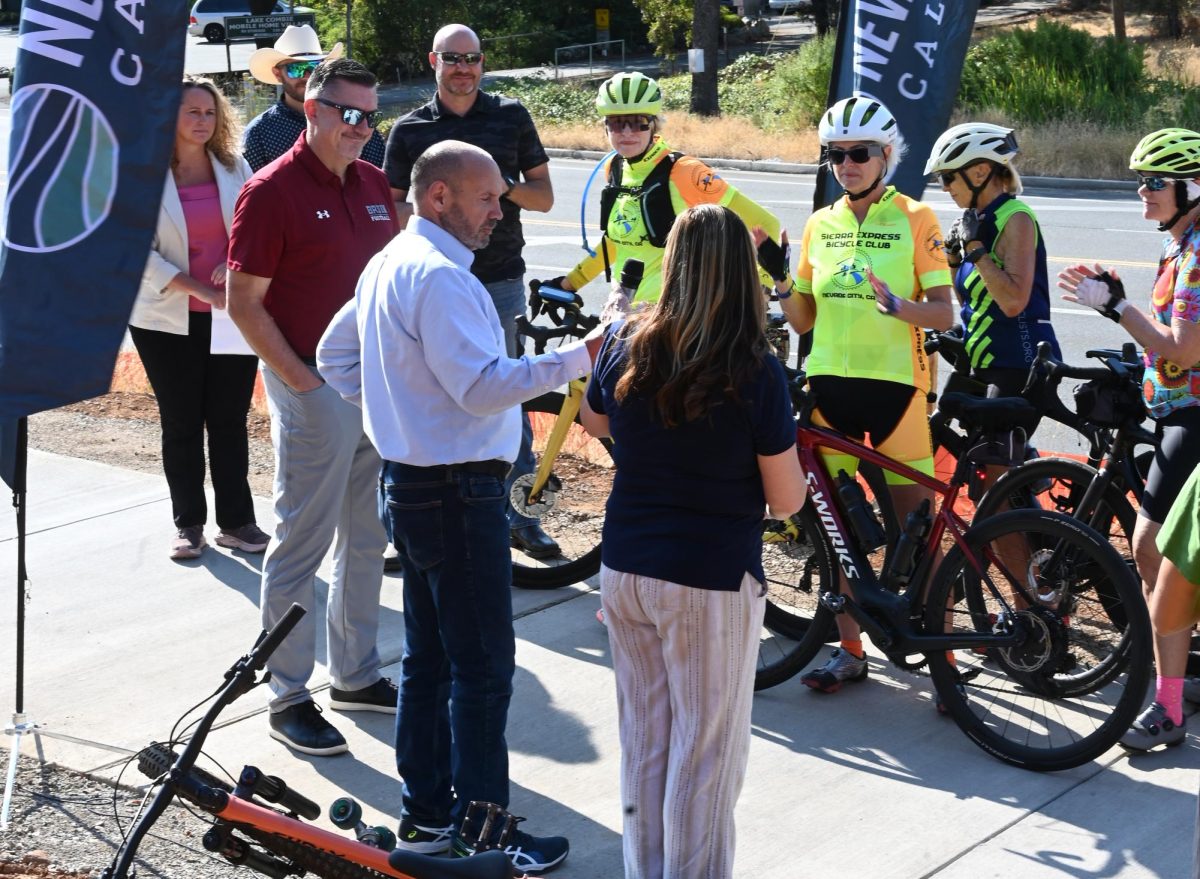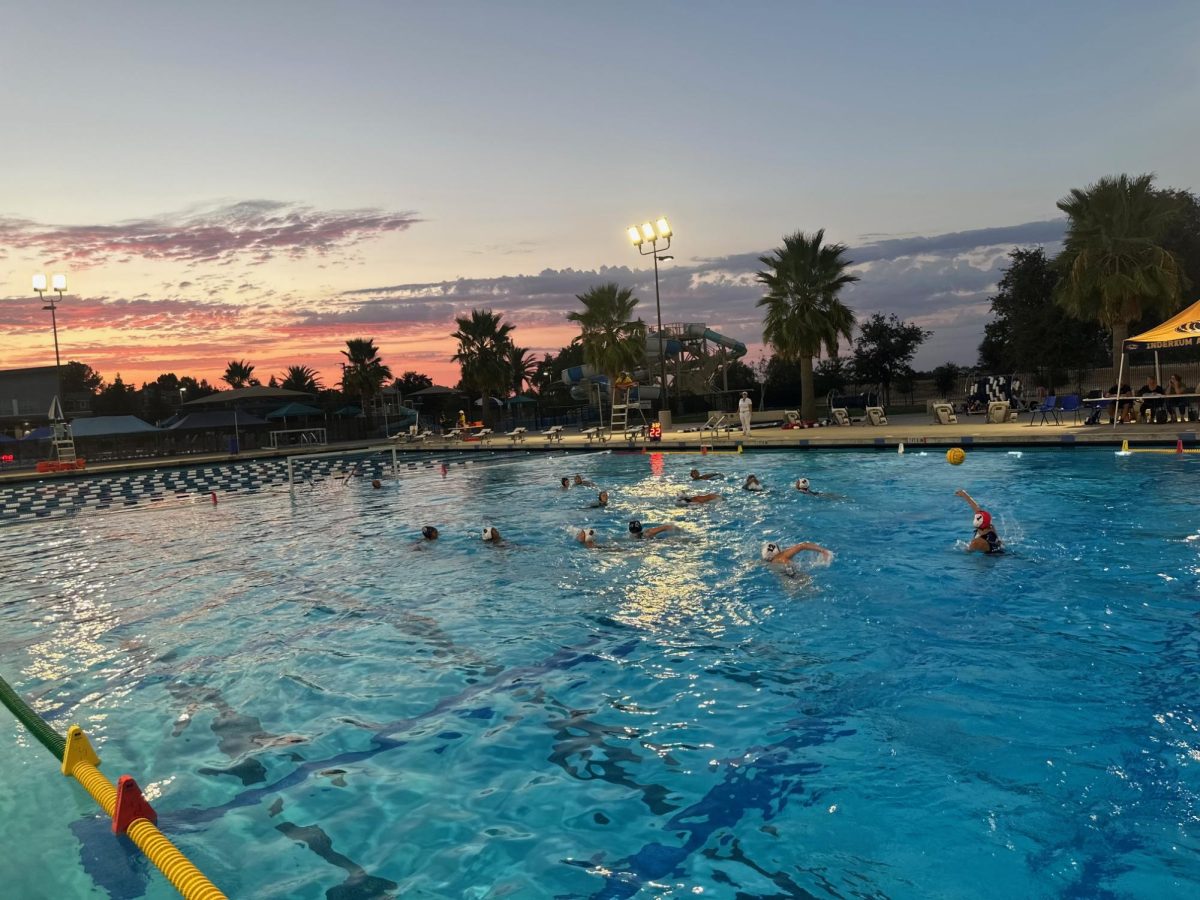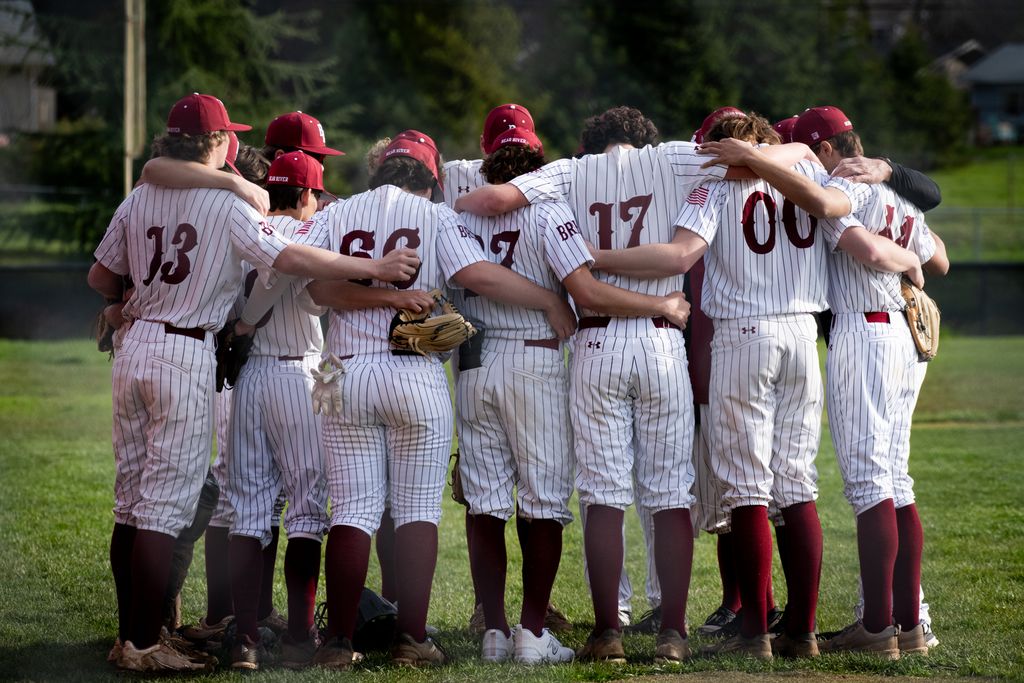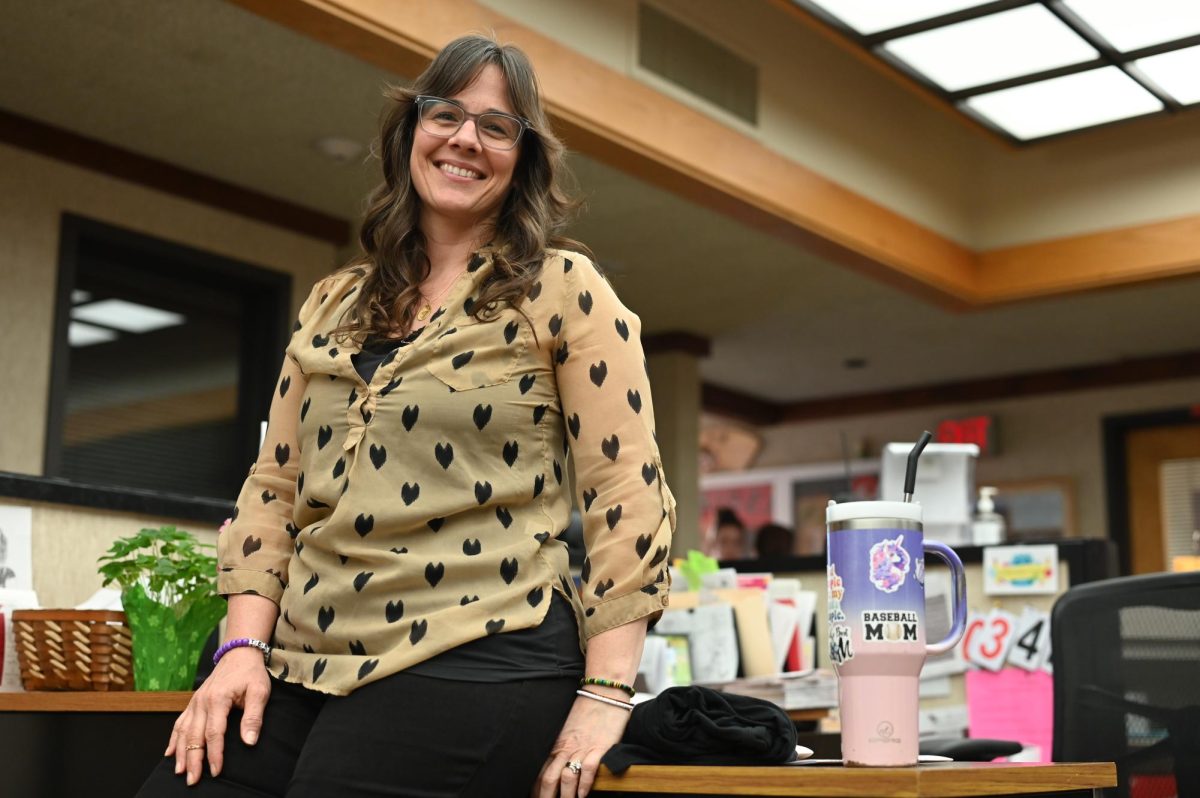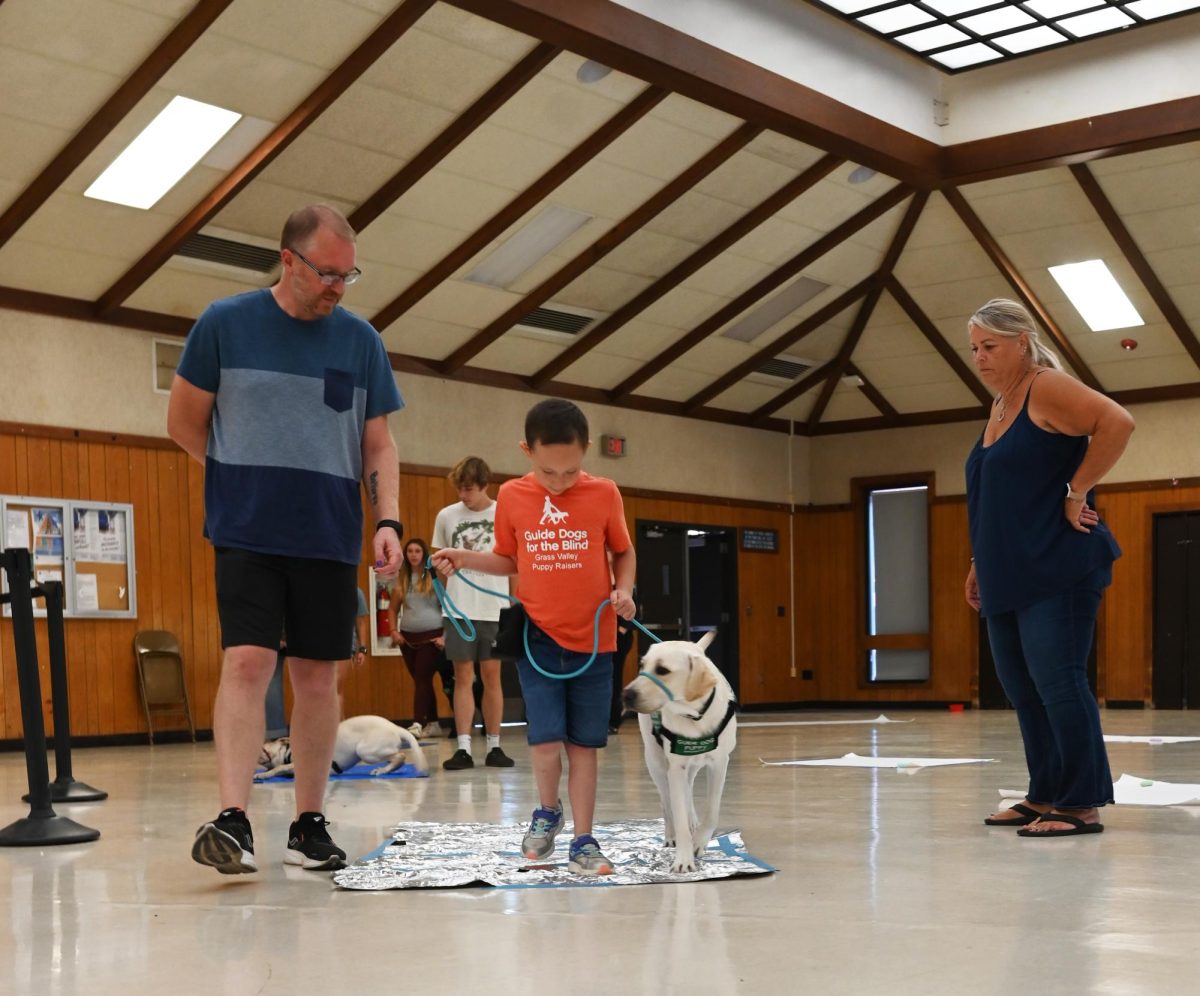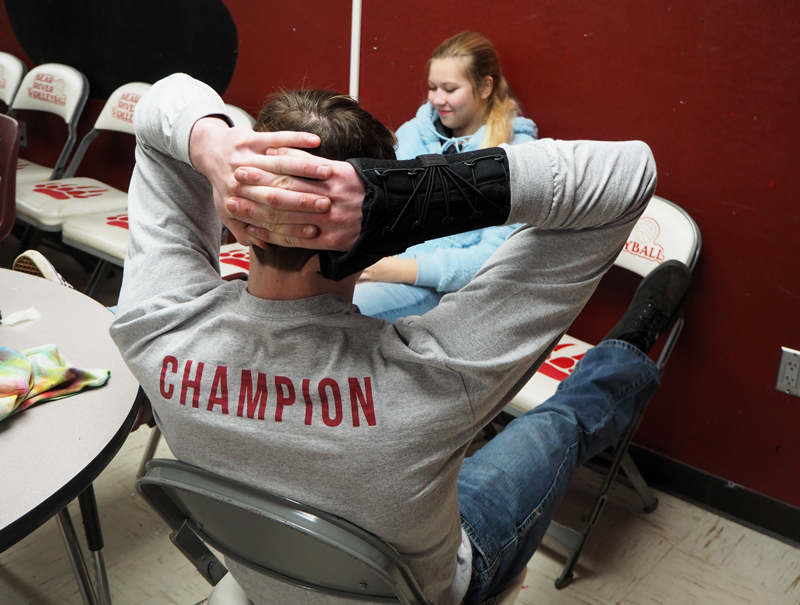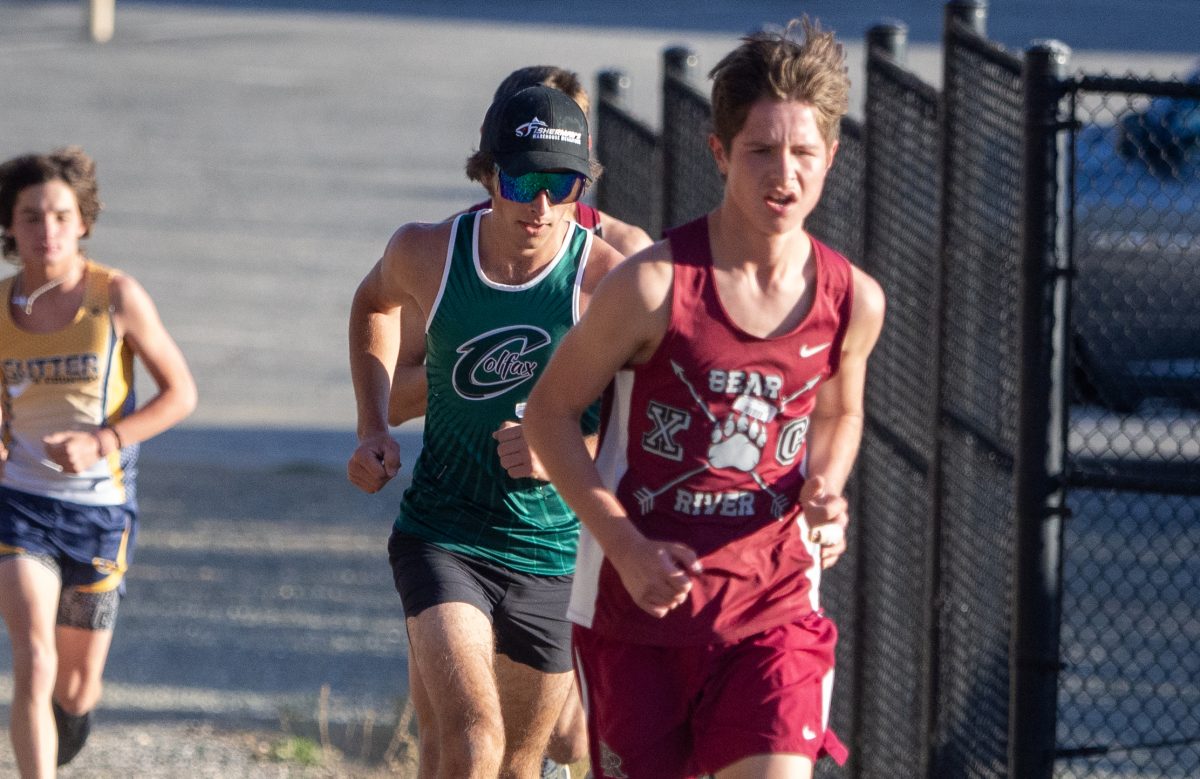As an athlete, one has to be prepared for many different circumstances involving the sport(s) one plays. The unpredictability of the other players can lead to many different kinds of injuries.
Athletic Director Scott Savoie explained the various injuries that occur while playing a sport.
“[The most common have been] joint sprains (mostly ankles), jammed fingers, and pulled muscles,” Savoie said.
According to junior Colton Jenkins, sports injuries are a common occurrence to hear about.
“I am pretty sure they are common in specific sports,” he said. “More in contact sports, but in other sports they’re not as common.”
Senior Aidan Smith agrees with him.
“I have been injured in practically every sport I’ve been in,” he said. “My most severe injuries have definitely occurred in Wrestling.”
Coach Savoie described how, despite hearing of the dangers from participating in sports, most injuries inflicted during play aren’t always as severe as they seem.
“Non-serious injuries are common, ones that really don’t require medical treatment,” he said. “Serious injuries are not common. This year’s varsity football season, over a 13 game season and almost 6 months of practice, we only had three instances where a player missed an entire game due to a serious injury.”
Players can miss out on a lot of things depending on how severe their injury is.
“Practicing,” Smith said. “I am out for two weeks right now after hurting my hand, so that’s fun … There’s always missing out on practice and the lack of experience.”
Junior Gabrielle Corralejo agrees with Smith.
“I was out for six weeks, and now I wear a brace on my leg,” she said.
Even if the chances of a serious accident are small, there have been some instances in which sports can inflict some serious injuries.
“Two real bad ones,” Coach Savoie said. “[We] had an athlete injure his spleen, and Toran Maronic’s brain injury, both of which could have been life threatening. Over a 38 year career, these were the two worst.”
Senior Chandler Brown gave a few tips on how to help prevent future injuries.
“Just taking care of your body and making sure you stretch well,” he said. “Making sure that, if you get injured, you quit playing the sport until you’re fully recovered.”
Others gave similar ideas.
“Good nutrition helps,” Corralejo said. “Because you’re stronger if you train well, and, if you have a weak area, you wear a brace.”
Recovering from previous injuries is not only important to ensure one’s safety while continuing to play their sport, but it can also benefit the way they play.
“I got surgery on my collarbone my freshman year,” Jenkins said. “It kind of helped out for my sophomore year and my junior year of football.”
Brown also had to take time to recover from an injury.
“I got surgery on [my hand],” he said. “Then, I had to do physical therapy, and I had to learn how to wrestle with one hand.”
After such a traumatic experience, some players don’t fully recover, according to Coach Savoie. Though, sometimes that change can be beneficial.
“Toran was not cleared to play football anymore, so he decided to run cross country his senior year,” he said. “He loved football, but, in the end, he loves to compete. I think he developed an appreciation for what it takes to be a cross country runner.”
Jenkins gave some friendly advice to any upcoming players.
“Just don’t go out to a sport you’re not comfortable with,” he said. “If you’re trying a new sport, then you should have an idea for how to play it.”


